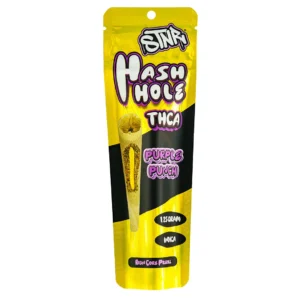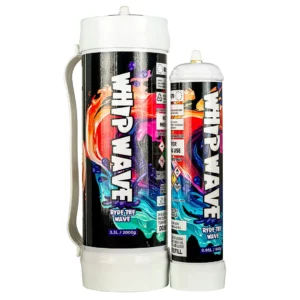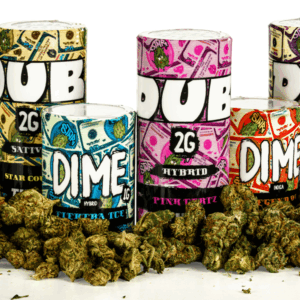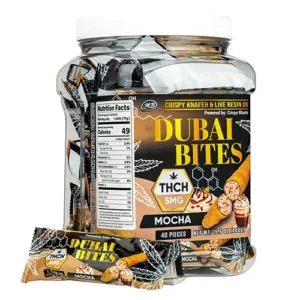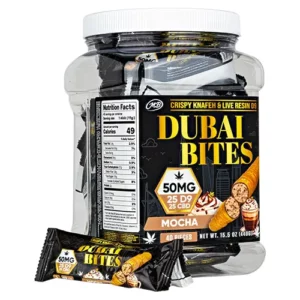Understanding the Hype and Risks of Delta 8 THC
Delta 8 THC (Delta 8 tetrahydrocannabinol) is a cannabinoid similar to Delta 9 THC (delta-9 tetrahydrocannabinol), the primary psychoactive compound in marijuana that is responsible for the “high” people experience. However, unlike its more infamous cousin, Delta 8 THC is derived from hemp plants and has slipped through a legal loophole that makes it accessible in many places where traditional cannabis sativa plants are not. Its rise in popularity stems from its purported milder high, pain relief, and fewer legal barriers.
Key Takeaway: This guide will dive into the nuances of Delta 8, including:
- How it affects your body and mind
- The current legal landscape surrounding its use
- Potential risks associated with consumption
Before you consider partaking in a Delta 8 THC-induced cannabis high, it’s essential to arm yourself with knowledge about what exactly you’re ingesting, how it might make you feel, and what potential consequences could arise.

What is Delta 8 THC?
Delta 8 THC is a minor cannabinoid found in the industrial hemp class of the cannabis plant, although usually in lower amounts than its more famous counterpart, Delta 9 THC. It’s chemical structure is different because of where its double bond is located – on the eighth carbon chain, while Delta-9 THC has it on the ninth chain. This small difference in the molecular structure greatly affects how it interacts with your body’s endocannabinoid system.
Definition and Properties of Delta 8 THC:
- Known for producing psychoactive effects, although usually milder than Delta-9 THC
- Exists naturally in small amounts, made from CBD derived from hemp
How is Delta 8 THC Different from Delta-9 THC? Both Delta 8 and Delta 9 THC attach to the CB1 receptors in the brain, which contribute to their psychoactive effects. Users often say that Delta 8 THC provides a more clear-headed experience with less anxiety and paranoia compared to Delta 9. This makes it an appealing choice for those looking for the benefits of cannabinoids without the strong high.
The Controversy Around the Legality of Delta 8 THC: Delta 8 THC exists in a legal gray area. Made from hemp, which is federally legal according to the Farm Bill of 2018, it bypasses some traditional drug laws. However, because of its psychoactive nature and similarity to Delta 9 THC, which is federally illegal under Schedule I classification, its legality is still being debated. Some states have chosen to ban or regulate it as they would with cannabis products products.
This part of the cannabinoid market is particularly risky because it is mostly unregulated, untested, and unstudied – raising concerns about consumer safety. Since these products are not required by the federal government to undergo testing, the quality can vary greatly between manufacturers.
As you think about adding Delta 8 THC to your routine, remember its uncertain legal status and lack of regulation which could impact how easily you can find it and how safe it is. Be careful when choosing products to make sure they are pure and high-quality – your well-being may depend on it.
The Current State of Regulation and Quality Control in the Delta 8 Industry
When exploring the world of Delta 8 THC, you’ll quickly realize that its regulation is not as strict as other substances derived from cannabis. Derived from industrial hemp, Delta 8 THC currently operates in a gray area of the law, leading to a significant gap in oversight. This lack of strict federal testing requirements allows products containing this compound to avoid regulation.
Lack of Regulation: Why Delta 8 THC Products are Not Being Controlled
Delta 8 THC’s uncertain legal status comes from the Agriculture Improvement Act of 2018, also known as the Farm Bill, which federally legalized industrial hemp and all its derivatives, excluding Delta-9 THC. However, this legislation did not specifically mention Delta 8 THC, leaving it unregulated at the federal level. As a result:
- Manufacturers can produce and sell Delta 8 products without standard federal scrutiny.
- Consumers may unknowingly purchase products that have not undergone safety evaluations.
Quality Concerns: The Need for Third-Party Testing and Manufacturing Standards
The lack of universal quality control measures raises significant concerns regarding product safety. With no mandatory testing or manufacturing standards:
- Potency and purity levels can vary greatly between products.
- Contaminants such as pesticides, heavy metals, or leftover harmful chemical compounds may be present.
To reduce these risks, consumers often choose producers who voluntarily test their products with third-party labs. This testing is important because it:
- Provides an unbiased analysis of what’s inside the product.
- Gives peace of mind about the accuracy of product labeling.
For your well-being and safety, always consider choosing Delta 8 products from reputable sources that provide transparent third-party lab results. These tests should confirm both the potency and purity of the product you plan to use.
By understanding these regulatory gaps and focusing on quality control through third-party testing, you empower yourself to make informed decisions about using Delta-8 THC. As you continue to navigate this changing situation, remember that with new compounds like these, staying informed is crucial to having a positive experience.

How Does Delta 8 THC Affect Your Body and Mind?
Delta 8 THC, a relative of delta 9 THC, the main psychoactive chemical component in delta 8 gummies and vape cartridges, interact with the body’s endocannabinoid system, but in unique ways. Here’s a look at how Delta 8 THC affects your physical and mental state:
Binding with Cannabinoid Receptors: The Psychoactive Mechanism of Delta 8 THC
Both Delta 8 and delta 9 THC bind to the CB1 and CB2 receptors in the endocannabinoid system. These receptors are found throughout the body and play a role in various bodily functions. Delta 8 THC has a lower affinity for these receptors compared to delta 9 THC, which may explain why it usually has a milder effect, often times referred to as diet weed. This interaction with the receptors affects the release of neurotransmitters, influencing mood, perception, appetite, and pain response.
Euphoria, Relaxation, and Other Reported Effects of Delta 8 THC Use
Users often describe the effects of Delta-8 THC as follows:
- Euphoria: A gentle feeling of happiness that is typically less intense than what you might experience with regular cannabis.
- Relaxation: A sense of calmness that can be helpful for those looking for stress relief without feeling too sleepy or sedated.
- Enhanced Perception: Some users say they have more intense sensory experiences when using Delta-8 THC, like seeing brighter colors or hearing sounds more clearly.
- Anti-Inflammatory Effects: Cannabinoids are the universes gifted advil
It’s important to remember that everyone’s experience with Delta-8 can be different depending on factors like their tolerance, dose, and how they consume it. Some people may find that it gives them just the right amount of high without causing anxiety or paranoia like higher doses of delta-9 THC sometimes can.
With its similarities to marijuana’s active ingredient but its own unique effects, Delta-8 THC continues to interest those who want a different kind of cannabis experience. As we learn more from research and personal stories, our understanding of this compound will grow—shaping how we view it and make decisions about using it.
Exploring the Potential Benefits and Therapeutic Applications of Delta 8 THC
Delta 8 THC has sparked interest not only for its recreational use but also for its potential benefits and therapeutic applications. Individuals seeking relief from various symptoms may find Delta 8 THC a promising compound due to its milder psychoactive properties compared to Delta-9 THC.

Pain and Inflammation Relief
Research suggests cannabinoids can interact with the body’s endocannabinoid system increasing medicinal benefits with pain and inflammation. Delta 8 users often report a reduction in pain levels, which may be attributed to its analgesic effects. This could make it a beneficial option for those with chronic pain conditions seeking alternatives to traditional pain medications.
Anxiety and Stress Reduction
Anecdotal evidence shows that Delta 8 THC may have anxiolytic properties, helping users manage anxiety, stress, and panic attacks. The compound’s ability to induce relaxation without intense psychoactive effects positions it as a possible therapeutic agent for people with anxiety disorders or those needing a stress-relieving supplement.
Anti-Nausea Properties
Delta 8 THC is also recognized for its antiemetic effects, which have been valuable in mitigating nausea and vomiting, particularly in patients undergoing chemotherapy. Its potential to ease these symptoms without causing strong intoxication could support better quality of life for individuals dealing with these adverse side effects.
While these therapeutic claims are promising, it’s essential to recognize that comprehensive clinical trials are lacking. Therefore, while personal experiences suggest several health benefits, scientific backing remains limited. Users considering Delta 8 THC as part of their wellness regimen should consult healthcare professionals, especially when integrating it with other treatments or medications.
The exploration into the medical viability of Delta 8 THC continues, as researchers aim to understand its full spectrum of effects more clearly. The subsequent section will delve into another vital aspect: the risks and side effects associated with Delta 8 THC use, providing a balanced perspective on this novel cannabinoid.
The Flip Side: Risks and Side Effects Associated with Delta 8 THC Use
When considering Delta 8 THC, it’s crucial to evaluate safety concerns and potential adverse effects. While Delta 8 THC may offer several therapeutic benefits, the substance is not without risks.
Limited Research on Long-Term Health Impacts
Research into the long-term health impacts of Delta 8 THC is scarce. This gap in data presents a challenge for users and medical professionals alike, as the full spectrum of possible health consequences remains undetermined. Without extensive studies:
- Users lack definitive guidance on how prolonged use of Delta 8 THC might affect their overall well-being.
- Medical professionals cannot accurately advise patients on the use of Delta 8 THC for chronic conditions.
- Potential interactions with other medications or health conditions are not thoroughly understood.

Short-Term Side Effects: Tolerance, Dependency, and Withdrawal Risks
Users of Delta 8 THC may experience various short-term side effects that raise concerns about tolerance, dependency, and withdrawal:
- Tolerance: Just like with many psychoactive substances, you might find that over time, you need to increase your dose of Delta 8 THC to achieve the same level of euphoria or relief.
- Dependency: There’s a risk that regular use could lead to psychological dependence, making it challenging to stop using Delta 8 THC without experiencing cravings or discomfort.
- Withdrawal: Should you decide to discontinue using Delta 8 THC, you may face withdrawal symptoms such as irritability, mood swings, disrupted sleep patterns, and appetite changes.
By acknowledging these risks associated with Delta 8 THC use, you can make more informed decisions about incorporating this cannabinoid into your lifestyle. Remember that individual experiences with Delta 8 THC can vary greatly, influenced by factors such as dosage, frequency of use, and personal physiology. As with any substance that affects your body and mind, a cautious approach and consultation with a healthcare professional are advisable before beginning use.
Is it Legal to Buy and Use Delta 8 THC in Your State?
The legal situation surrounding Delta 8 THC can be quite complex, often varying on a state-by-state basis. While there’s no denying the growing popularity of this cannabinoid, its legal status remains a subject of heated debate.
At the federal level, the legality of Delta 8 THC is tied to the Agricultural Improvement Act of 2018, commonly known as the Farm Bill. This bill legalized industrial hemp and all its derivatives, including cannabinoids, provided they contain less than 0.3% Delta 9. As Delta8 can be derived from hemp, many argue it falls under this legislation.
However, not everything is as straightforward as it seems.
The Drug Enforcement Administration (DEA) has issued a statement claiming that any synthetically derived tetrahydrocannabinols remain Schedule I controlled substances. Given that most Delta 8 on the market is produced synthetically from CBD, this interpretation could potentially render it illegal.
Adding another layer to the complexity are state regulations. Some states have specifically outlawed Delta 8 regardless of its source — these include Alaska, Arizona, Arkansas, Delaware, Idaho, Iowa, Mississippi, Montana, and Nebraska.
Before making a purchase or using Delta 8 THC, it’s crucial to check with your local laws and regulations to ensure compliance. This landscape continues to evolve rapidly so staying informed is key.
Making an Informed Decision: Should You Try Delta 8 THC?
When deciding whether to try Delta 8 THC, it’s important to weigh its potential benefits against any possible risks to your health. While the idea of experiencing a legal high and the potential therapeutic effects of Delta 8 THC may be tempting, it’s crucial to make an informed choice.
The Upside: Potential Pleasurable Effects
Here are some of the potential pleasurable effects that users commonly associate with Delta 8:
- Euphoria: Many users report feeling a milder high compared to Delta-9 THC, which can be appealing if you’re looking for less intense effects.
- Relaxation: Delta 8 THC is often praised for its ability to induce a sense of calm and relaxation without the anxiety or paranoia that some people experience with marijuana.
The Downside: Possible Health Concerns
It’s also important to consider the potential risks and uncertainties surrounding Delta 8 THC:
- Unregulated Market: The production and sale of Delta 8 products are currently not regulated by the federal government. This lack of oversight raises concerns about product safety, including issues related to purity and potency.
- Unknown Long-Term Effects: Since Delta 8 THC is a relatively new phenomenon, there hasn’t been enough scientific research conducted on its long-term effects. As a result, we don’t yet have a clear understanding of how it may impact our health over time.
Prioritizing Your Health
When making a decision about whether or not to try Delta 8 THC, it’s essential to prioritize your health and well-being. Here are some steps you can take:
- Choose Reputable Sellers: Purchase Delta 8 THC products only from trusted vendors who provide third-party lab testing results. This can help ensure that you’re getting a safe and reliable product.
- Consider Your Medical History: If you have any pre-existing health conditions or concerns, take them into account before trying Delta 8 products. It may be wise to consult with a healthcare professional who is familiar with your medical history.
- Stay Informed: Keep yourself updated on the latest developments and research regarding Delta 8 THC. As more information becomes available, you’ll be better equipped to make an educated decision.
Remember, it’s ultimately up to you to decide whether the potential benefits of Delta 8 outweigh the possible risks. By taking a cautious and informed approach, you can make a choice that aligns with both your personal preferences and your commitment to staying healthy. Choose a reliable company like STNR Creations for your Delta 8 Products, Shop Now.

